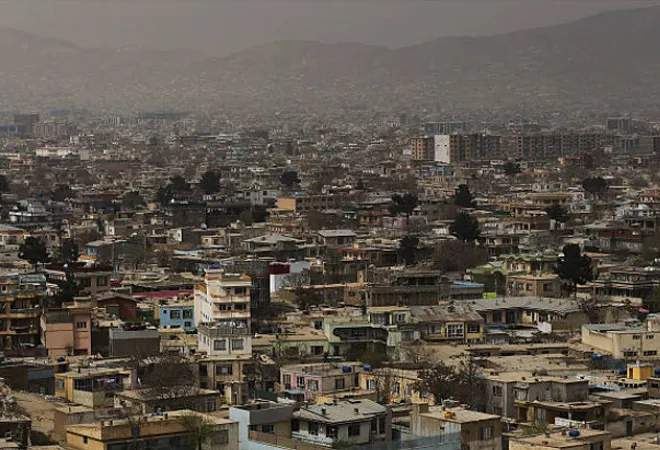
It is universally acknowledged in the democratic world that decentralisation is amongst the most significant instruments for good governance. It brings decision-making closer to the people and allows authorities with greater knowledge of local conditions to make more informed decisions. Unfortunately, the logic of decentralisation gets stoutly confronted by the innate inclination of every level of government to hold on to power that it has. As a consequence, the search for decentralisation has been a titanic and prolonged struggle with few positive results at the urban local body level.
The matter of empowering the urban local bodies through functional, financial, and administrative decentralisation was an issue that was not on the policy plate of the Government of India during the first 45 years of independence. During this period, states dissolved popularly elected urban local bodies at will and appointed administrators. This allowed the states to drive their own agenda at the local level. The first sign of Government of India’s (GoI) interest in empowering local bodies was witnessed in 1992. With the avowed purpose of local empowerment and decentralisation, the 74th Amendment Act was passed. However, the Act, while setting empowerment and decentralisation as objectives, ended up handing the ULBs over to the control of the states. It attached Schedule 12 to the Constitution, listing 18 functions. However, these were suggestive. In the ultimate analysis, it was the states that could decide which functions would go to the ULBs and which would not. In the case of urban local finance, the 74th Amendment did not even offer a suggestive tax list. It left it to the states to decide what taxes could be levied by ULBs and what could not. Neither did the Amendment Act attempt to enforce a reformed administrative structure, which would put more popular control in the hands of the ULBs. The subject of municipal leadership was thought to be too trivial to mention.
The matter of empowering the urban local bodies through functional, financial, and administrative decentralisation was an issue that was not on the policy plate of the Government of India during the first 45 years of independence.
GoI has felt obliged down the decades to craft its own schemes for the ULBs run at the local level with financial contribution from the GoI. All these schemes like Jawaharlal Nehru Urban Renewal Mission (JnNURM) or the latter ones such as the Smart Cities Mission, have championed decentralisation from the states to the ULBs and have included citizen consultations. However, the schemes have been run by the Ministry of Urban Development with skintight administrative and financial control, asking the ULBs to essentially carry out the will of the GoI.
The states, for their part, have kept complaining about the Centre for not respecting the principles of federalism and for repeatedly treading on the toes of the states. This has not been without reason and some of it was witnessed recently during the COVID-19 pandemic. However, the states themselves want to give no elbow room to the ULBs in local governance. The Indian ULBs are amongst the most rigorously controlled local bodies dominated in their governance by state parastatals and functionaries. State district authorities retain control of the ULBs. Their chief executives get posted by states; their budgets, with certain exceptions, are subject to state approval, and mayors, in general, continue to be figure-heads with little administrative, financial, and functional powers. Development plans of ULBs are subject to state approval and there are instances of very substantive changes made in their plans and regulations even against the will of the ULBs.
Since urban development is a state subject, states have the power to push through major reforms that would usher good governance in ULBs. Down the decades, however, states have not cared to take any initiative and change the statutory framework that governs ULBs. Since cities are the first recipients of changes in technology and management and the crucible of experimentation, their governance is called upon to respond to new situations. However, with a state-centric legal framework more than a century old, most cities are struggling to keep pace with the new challenges, thanks to the unwillingness of the states to seriously consider the altered situation and ring in the changes.
Since cities are the first recipients of changes in technology and management and the crucible of experimentation, their governance is called upon to respond to new situations.
ULBs in turn keep harping on the interference of the states in every nook and corner of local functioning. However, they themselves are very chary of allowing any other group into areas of local decision making. The 74th Amendment provided for wards committees in all ULBs with more than 300,000 population. The objective was to bring local decision-making closer to the scene of action so that there is better participation and more informed decision. However, a study in 2006 discovered that even after more than a decade of the existence of the 74th Amendment Act, only eight states had constituted wards committees. Within the ULBs, the authorities were reluctant to devolve any substantive power to these committees. In most states, the committees were not empowered to handle grievance redressal; their powers to propose works related to their own areas and provide budgets for them were either denied or were entirely recommendatory; their administrative powers were severely limited. Since the Amendment Act remained silent on the work aspects of the wards committees, ULBs were under no pressure to give anything away by way of devolution.
The significance of citizen empowerment for democratic salubrity has been long recognised. However, the struggle in India for institutionalising citizen’s participation in ULBs has till date been a long, unsuccessful struggle. Indian ULBs have been unwilling to allow any meaningful direct citizen participation in any aspect of civic governance. Considerable progress in this area has been achieved in the western world, aided by the march of technology, social media, and the ease of establishing online platforms for citizen interaction. Since information flow is rapid and voluminous in the modern world, citizens in many Indian cities have formed groups and associations with a view to press for decision-making space in their own localities. GoI itself initiated the Model Nagar Raj Bill to institutionalise people’s participation. The key deliberative mechanism that the Model Nagar Raj Bill proposed was the Area Sabha, defined as “the body of all the persons registered in the electoral rolls pertaining to every polling booth in the Area in a Municipality.” In order to have the Bill passed by the states, the disbursement of funds to the states under the JnNURM were made conditional on compliance with the passage of this Bill. GoI’s initiative, however, fell on deaf ears of the states. Only a dozen states passed the community participation law. Even here, amendments were introduced by the states designed to effectively keep the citizens away from the local decision-making process. This was despite the fact that the ‘Area Sabha’ was still merely advisory in nature and not binding on the municipal decision-making process. Subsequent ideas such as the ‘Jan Sabha’ proposed by the Transparency Committee, set up by the government of Maharashtra, have found no traction at the state level.
The struggle in India for institutionalising citizen’s participation in ULBs has till date been a long, unsuccessful struggle.
The above narration leads to a clear conclusion that each level of government does not want to shed any authority to a lower level of government. The centre works to retain all of its power base and keeps looking for areas of expansion of its authority. The state has a similar attitude for the urban local bodies. The ULBs in turn want no governance space to be ceded to wards committees. And the wards committees want to have nothing to do with citizens and their groups. All talk of decentralisation becomes a charade, to be continuously talked about without doing anything about it.
The views expressed above belong to the author(s). ORF research and analyses now available on Telegram! Click here to access our curated content — blogs, longforms and interviews.




 PREV
PREV


